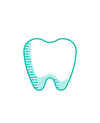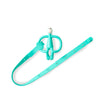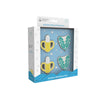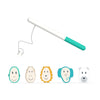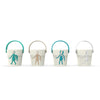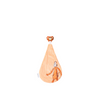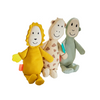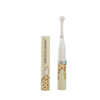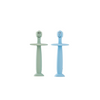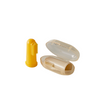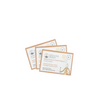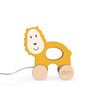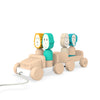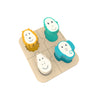When Should I Give My Baby Chocolate?
With Easter approaching, are you wondering if it is the perfect time to introduce your baby to chocolate? We have the answers!
Is chocolate safe for babies and young children?
Babies younger than 18 months should usually avoid chocolate, particularly dark chocolate and milk chocolate. So as long as your little one is healthy, it's possible that a little bit of sugar won't do any real harm, particularly if you offer a varied diet - just make sure after that you clean your teeth properly.
Due to the high sugar content in chocolate, enamel-attacking acid is produced in the mouth of your child which can damage those first teeth. When we consume a meal, the amount of saliva in our mouth increases and the effects of tooth-attacking acid are neutralised by saliva. And if you offer chocolate to your little ones, it's best to eat at mealtime. And at most, once a day your child can have a fun size or mini chocolate bar that contains less sugar than a normal sized treat.
Which chocolate is suitable for kids?
Keep in mind that chocolate should be a treat instead of a part of the regular diet for your kids. I suggest pairing chocolate buttons with dried apricots (my youngest loves Apricots!) The dried apricots are a great nutritional source for your baby, while the chocolate offers a bit of a treat. And make sure that after chocolate intake your baby has a piece of cheese or some milk as soon as possible to help neutralise the sugars.
When to Introduce
In the first year of your child's life, most experts recommend that no sweets are added. You want them to first grow a taste for other, safer food products. Yet there are practically no clear medical recommendations for exposing your baby to chocolate. Once solid foods have been introduced it is up to parental discretion. But bear in mind, for your little one, chocolate also includes some of those big eight allergens like dairy that you may want to avoid.
When you have specific questions or concerns about the best time to introduce a new food to your infant, you can also contact your paediatrician.
Allergy Concerns
Once upon a time, chocolate had been mentioned as a food for children to think about. Allergic responses have been observed and parents have been warned to proceed carefully. Yet it's become clearer in recent years that many of those suspicious reactions were actually the result of things like nuts or soy in the chocolate. All are classified on the top eight food allergens list by the FDA. Chocolate itself is uncommonly responsible for allergic reactions.
It's always necessary to read labels and to speak to your paediatrician about any questions you might have. And if you introduce some new food to your baby, you should also be on the lookout for allergic reaction symptoms. This may include rashes, pain to the stomach, or scratching. In extreme cases an allergy to food may cause swelling of the tongue or throat of a child. In this situation, you can get urgent medical assistance.
Other Concerns
Families should take into consideration the nutritional value of chocolate. Moderation is important for babies who just don't consume a lot of solid foods yet. You don't want chocolate (or any other type of candy or sweetness) to ever become a major component of your daily diet for your little one. Among other health issues too much sugar can lead to obesity and diabetes.
To conclude, Easter can be the perfect time to treat your little one. However, don't make chocolate a daily component of your child's well-balanced diet on a normal day.
Happy Easter everyone!

